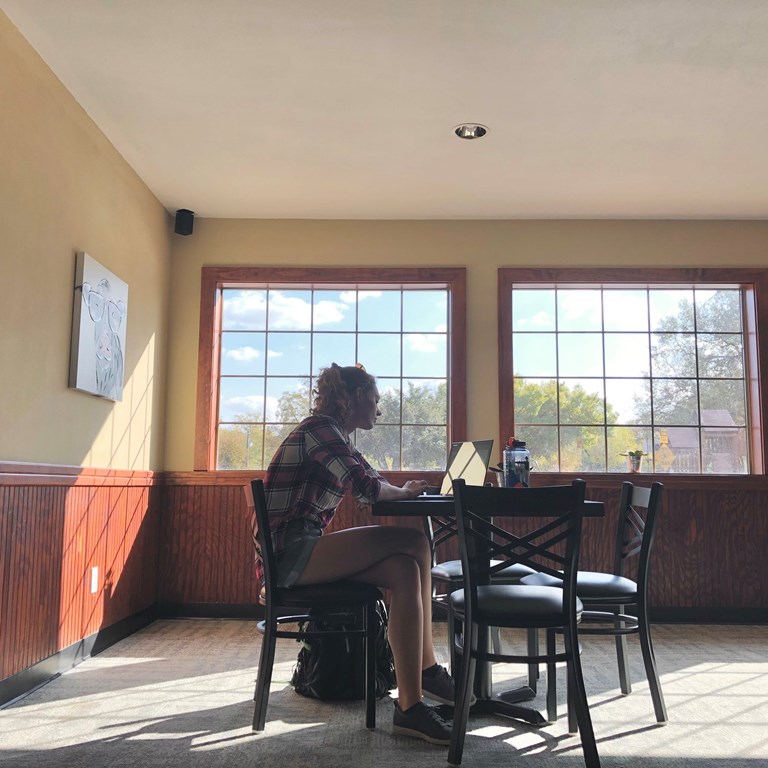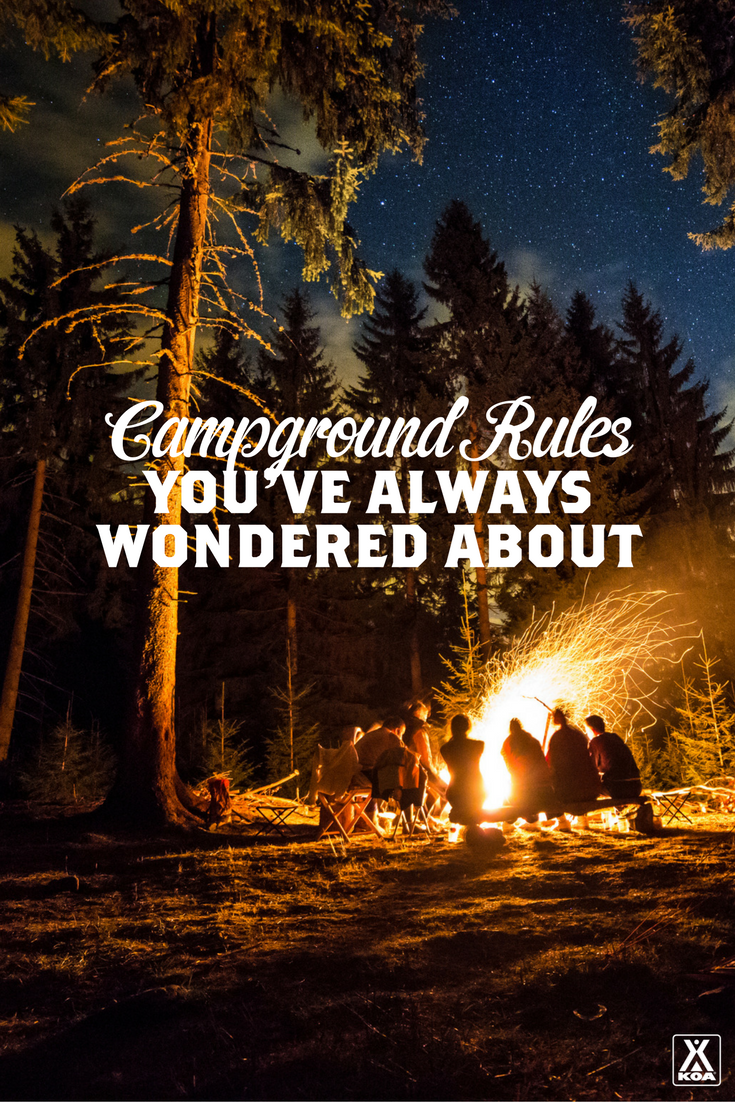Your cart is empty!
Make checkout easy by booking all your reservations at once. Add your sites from different campgrounds into your shopping cart* and then choose checkout.


Kampgrounds of America Inc. Photograph
When you head out camping, the last thing on your mind is probably rules. However, campground rules are important and necessary so that your pleasant camping experience can stay as pleasant as possible. In addition to being important, we also know that a few campground rules can make campers go, “hmmmm.” If you’ve ever wondered why certain rules exist at many campgrounds you’ve visited this is for you!
Does the campground you’re visiting have designated parking for sites? Odds are this is to help control traffic and keep everyone safe. You might also be asked to only park at the site where you’re registered. While we know that open RV site next to you might present a great spot to park, it might be reserved for a late arrival or a guest pulling in early the next day. Even if the site is empty for the entirety of your stay, it’s courteous to leave sites that you haven’t reserved open. If you’re expecting visitors, it’s especially important they stop at the store to enquire about designated visitor parking.
Similar to the allure of an open site for parking, the empty picnic table next door might look attractive if you need a little more room at dinner. Remember, that you don’t know when your neighbors might be checking-in. Also, moving equipment like tables and fire rings can be an easy way to get hurt. It can also make extra work for campground hosts and staff who have to put things away and clean up messes – intentional or not. Even worse, moving items can, and has, result in damages which can result in expensive repairs or replacements that are the responsibility of the camper. Yikes!
If you’ve ever camped in an area near friends and family you might have experienced visitor fees when guests want to come to call. Visitor fees might come as a surprise, but they are important for campgrounds which are only designed to accommodate a certain number of people at a time. Extra guests, even when they don’t stay overnight, produce additional expenses when using supplies and facilities. Additionally, campgrounds have to be conscious of their permitted occupancy by law and their insurance – visitor fees are one way to help achieve this. Beyond helping offset costs, visitor fees are also an important security measure; people looking to cause problems are less likely to do so with fees in place. Most importantly, keep in mind that campground owners love having people visit and enjoy their parks; fees help keep these visits manageable and more comfortable.
We know that when you’re camping, having fun is never a challenge. It’s important, however, that your fun is mindful of campground quite hours. Quiet hours might seem obvious on a campground, but what might be less obvious is that it’s not always simply because people are sleeping and tent walls are thin. Local ordinances are often being observed when a campground sets its quiet hours. While families and early campground risers might appreciate the peace and quiet, these rules are also a necessity when it’s the law.
Most campgrounds require pets be kept on a leash when visiting the park. This often includes when your pet is on your site. The reason for these rules isn’t to limit the comfort of Fido, but to ensure safety in all circumstances. While your pet might be especially friendly, you can never be totally sure how he or she will react in a new setting. It can also give you piece of mind regarding others’ pets. Dog fights are uncommon on campgrounds, but leashes are a great prohibitor and aid just in case. Keeping these things in mind, it’s easy to see how rules about leashes are important for the safety of others and your pet. Also remember that many KOAs feature a dog park where your pet can blow off steam leash-free.
If you’re a fan of camping in a group, you’ve probably experienced site occupancy limits. Why do campsites, which are outdoors, have limits for sites? Much like charging visitor fees, campgrounds have to be conscious of their overall occupancy limit and covering the costs of supplies. Site occupancies also ensure that campers aren’t crowding their neighbors – no one wants to be a bad camp neighbor! For tenters, there is usually a tent per site occupancy limit, too. These specific limits for tents are also important for the reasons stated above and especially taking your neighbors into account.
While everyone loves campfire dinners, few people love camping dishes (or any dishes for that matter). Perhaps you’ve seen signs warning against washing these dishes in bathroom sinks. Let’s be honest, sometimes the bathroom sink is just a lot closer than the designated sink the campground offers, but it’s important for you take the time make the extra trek. Campgrounds offer dishwashing sinks – sometimes in convenient camping kitchens – to avoid clogs, be mindful if they aren’t on city water and because no one likes leftover beans when brushing their teeth.
The next time you’re camping, remember that campgrounds rules aren’t meant to be limiting, but rather meant to make the experience better for all guests. Usually these easy to follow rules are there to make everyone happy campers. If there is a rule you’re curious about, your campground hosts will usually be more than happy to explain why it’s in place.
That doesn't mean this area has to always be empty. When you start reviewing camping options, your history will display here to help compare sites and find the best stay. You will be able to share your stay information with friends or family and save it for a later time if you have a KOA Account.
Make checkout easy by booking all your reservations at once. Add your sites from different campgrounds into your shopping cart* and then choose checkout.